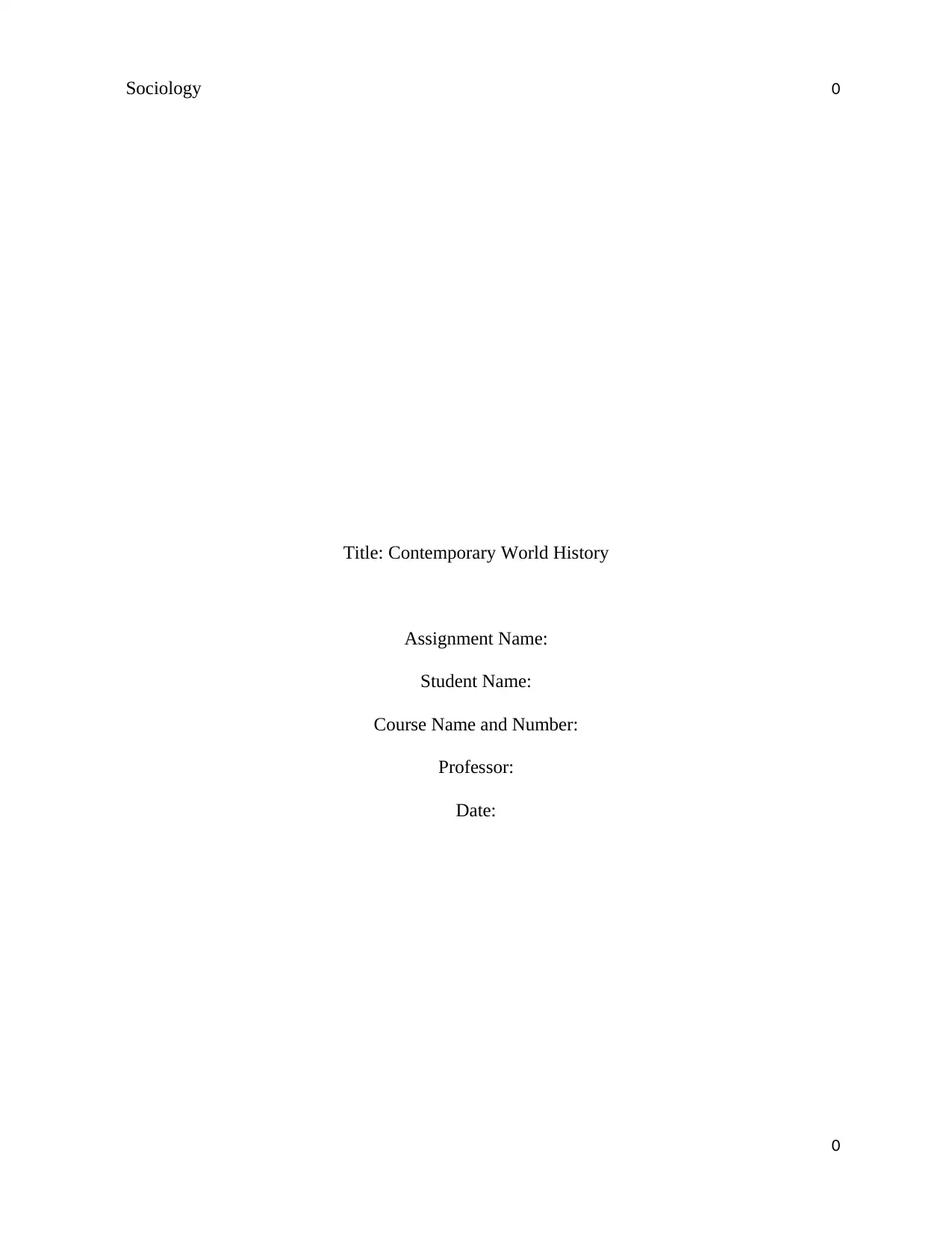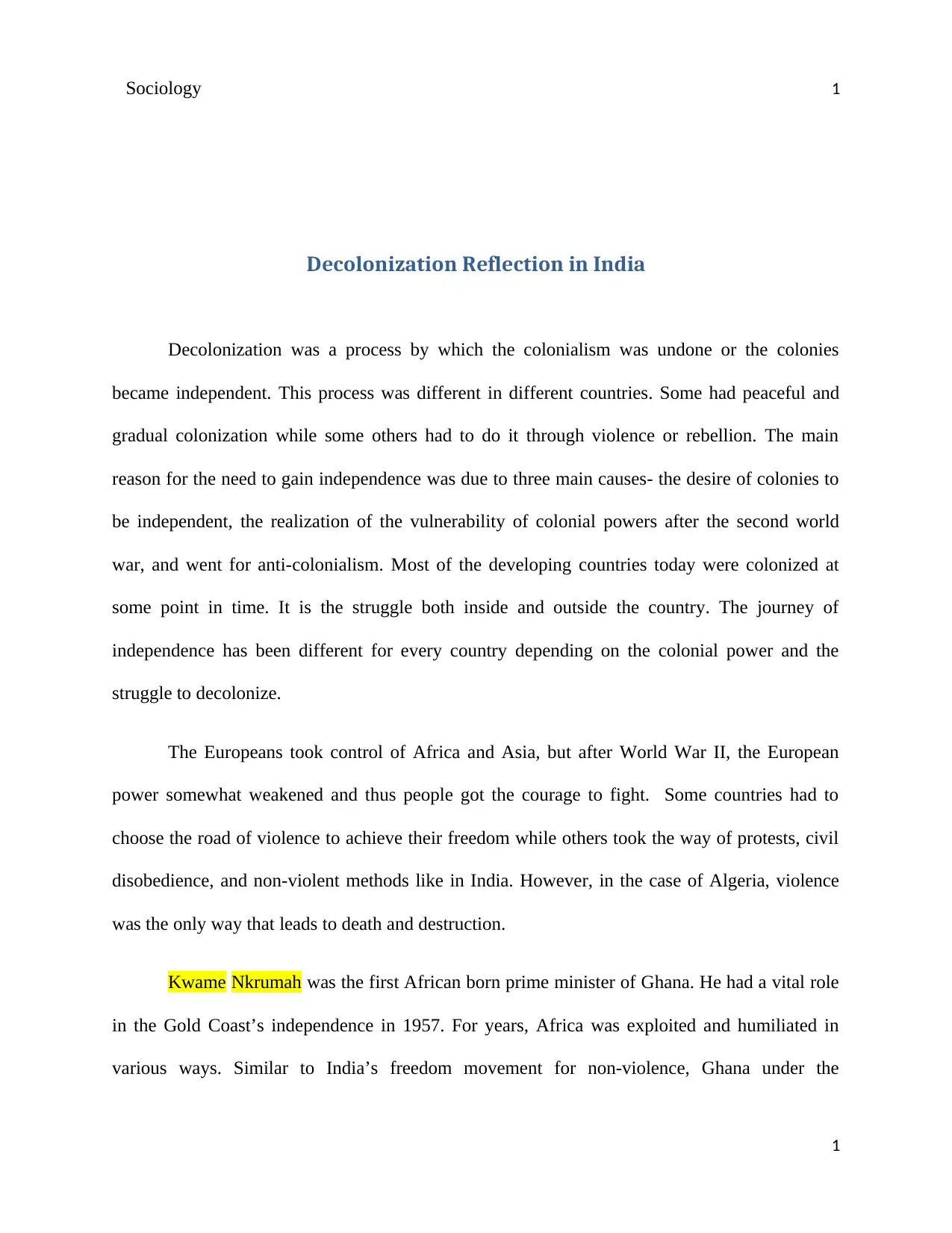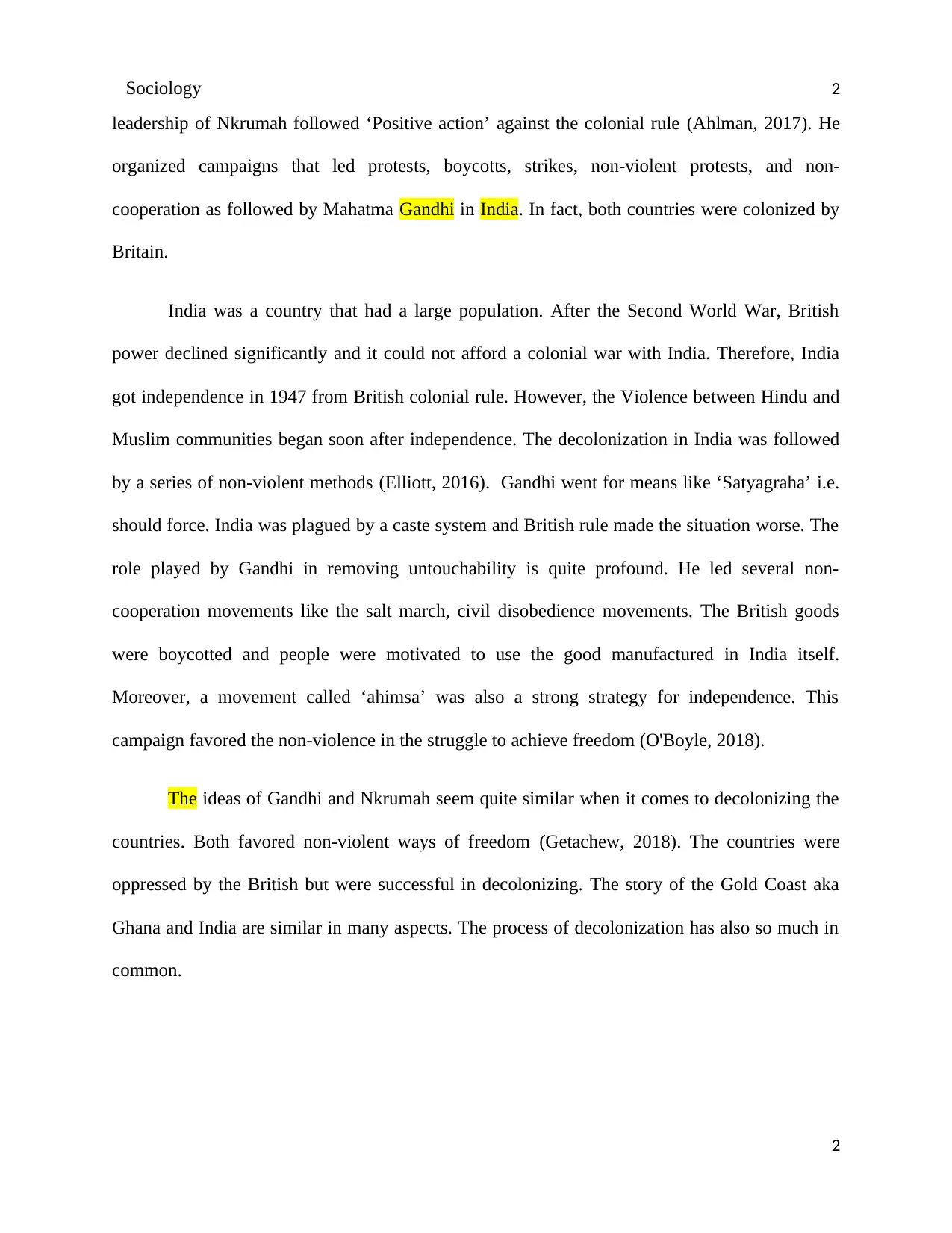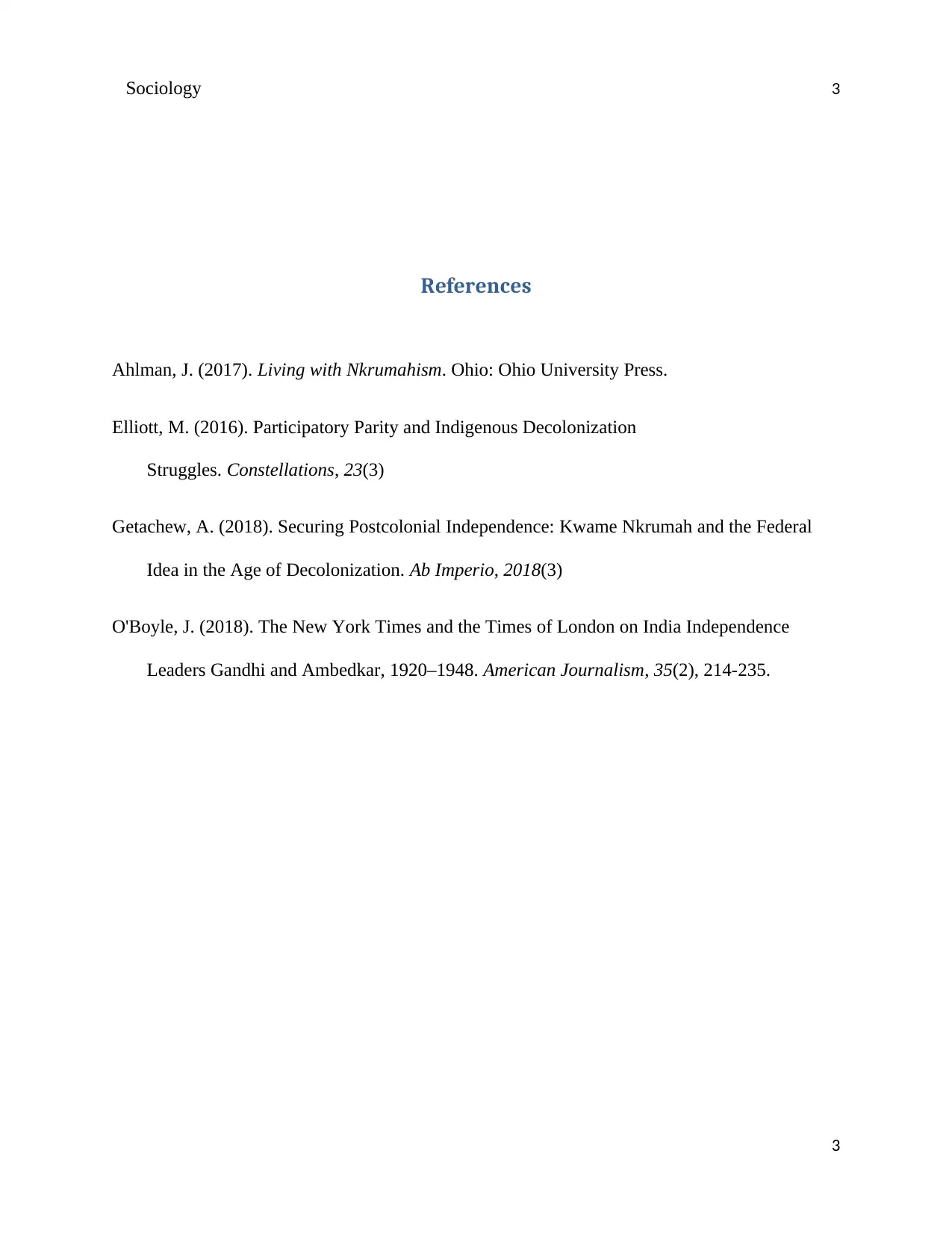Decolonization Reflection: Comparing India's Independence and Ghana
VerifiedAdded on 2022/12/22
|4
|697
|29
Essay
AI Summary
This essay examines the decolonization process in India following World War II, comparing it to the approach taken by Ghana. The student analyzes the key factors that led to India's independence from British colonial rule, emphasizing the role of non-violent methods like Satyagraha and civil disobedience, as championed by Mahatma Gandhi. The essay contrasts India's approach with the ideas of Kwame Nkrumah, the first prime minister of Ghana, and explores the similarities in their strategies for achieving independence, both of whom advocated for non-violent resistance. The essay also briefly touches upon the challenges faced after independence, such as the violence between communities. The assignment references the ideas of Franz Fanon and Nkrumah to explain the process of achieving independence. The essay uses provided resources to discuss the decolonization process and the response of colonized people to the colonizing powers, and includes relevant citations.
1 out of 4











![[object Object]](/_next/static/media/star-bottom.7253800d.svg)